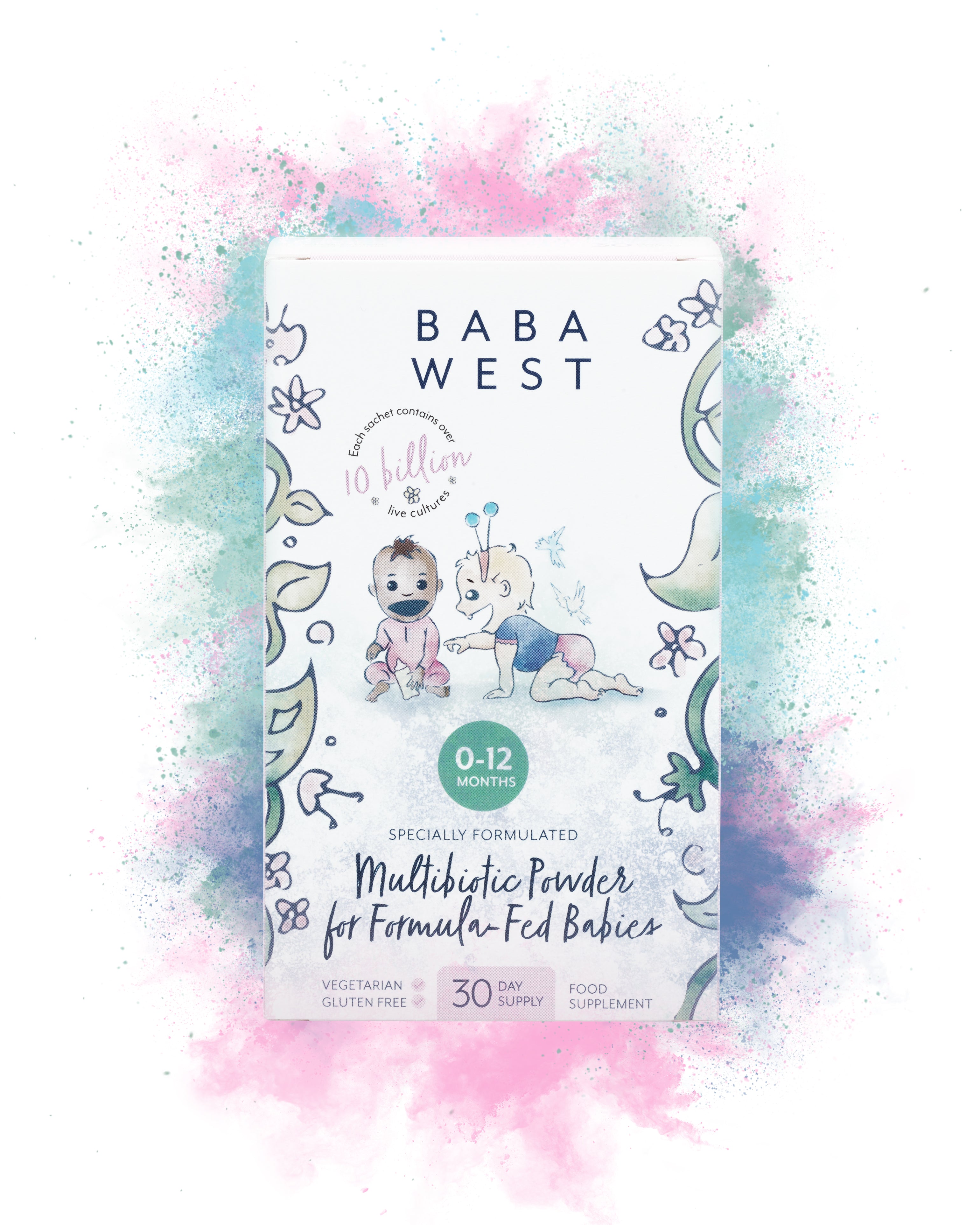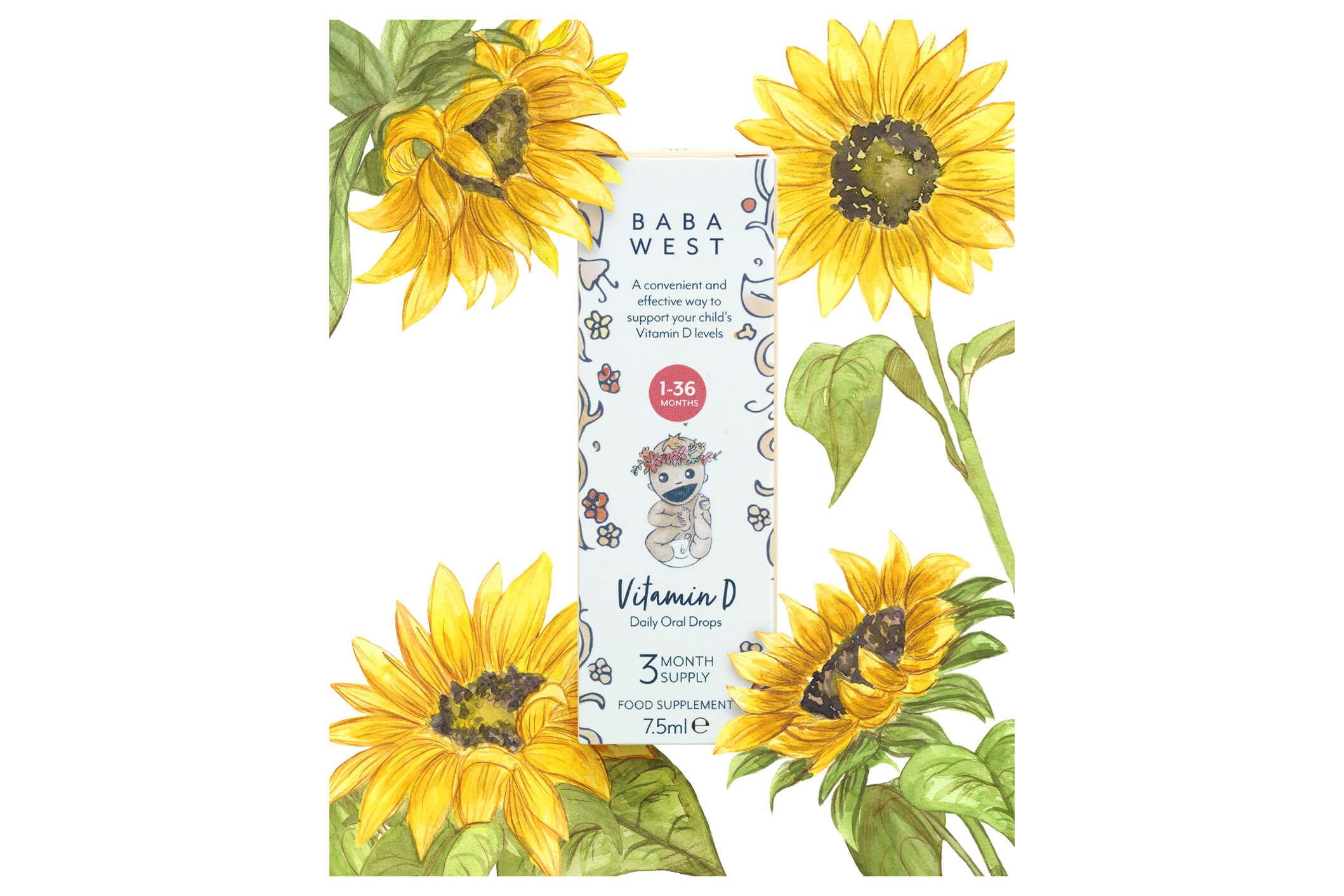MULTIBIOTICS BENEFITS

Benefits of multibiotics for your baby
Over the past few years there has been a tremendous amount of interest in the friendly gut bacteria and other microbes that make up our microbiota (also known as microflora or microbiome). We are starting to learn a lot more about their role in health, in particular healthy immune function. Since babies are born with an immature immune system, they depend on establishing a healthy, balanced microbiota from the moment of birth, to ensure the correct microbes are present for optimal immune function and development throughout infancy, childhood and even into their adult life (1).
An imbalance of bacteria and other microbes in the microbiota of babies and infants is linked to a number of health conditions where the immune system doesn’t work properly. These include asthma (2), Crohn's disease (3), inflammatory bowel disease -IBD (4), necrotizing enterocolitis (5) and type 1 diabetes (6).
Many factors can affect the establishment of a baby’s microbiota. Babies born by caesarean section receive fewer microbes from their mother’s microbiota than those born by vaginal delivery; medication (particularly antibiotics), diet, and our modern ultra-clean, bacteria-free living conditions can also inhibit development of a healthy microbiota (1). Providing the foundations for a healthy, balanced microbiota as soon as possible after birth is therefore critical in supporting the development of your baby’s healthy immune and digestive function.
Health benefits
- Supports development of healthy, balanced friendly gut bacteria (microbiota) which in turn:
- Promotes healthy digestive function
- Supports healthy immune function
- Reduces risk of inflammatory bowel conditions
- Reduces the risk of asthma and eczema
To see our range of multibiotics for babies click here.
References
- Rebecca E Moore and Steven D Townsend (2019) Temporal development of the infant gut microbiotaOpen Biol.9190128 https://royalsocietypublishing.org/doi/10.1098/rsob.190128
- Arrieta MCet al. (2015) Early infancy microbial and metabolic alterations affect risk of childhood asthma. Sci. Transl. Med. 7, 307ra152. (doi:10.1126/scitranslmed.aab2271)
- Gevers Det al. (2014) The treatment-naive microbiota in new-onset Crohn's disease. Cell Host Microbe 15, 382-392. (doi:10.1016/j.chom.2014.02.005)
- Manichanh C, Borruel N, Casellas F, Guarner F. (2012) The gut microbiota in IBD. Nat. Rev. Gastroenterol. Hepatol. 9, 599-608. (doi:10.1038/nrgastro.2012.152)
- Warner BBet al. (2016) Gut bacteria dysbiosis and necrotising enterocolitis in very low birthweight infants: a prospective case-control study. Lancet 387, 1928-1936. (doi:10.1016/S0140-6736(16)00081-7)
- Tilg H, Moschen AR. (2014) Microbiota and diabetes: an evolving relationship. Gut 63, 1513-1521. (doi:10.1136/gutjnl-2014-306928)
- Allen SJ, Jordan S, Storey M, et al. (2014) Probiotics in the prevention of eczema: a randomised controlled trial. Arch Dis Child. 2014;99(11):1014‐1019. doi:10.1136/archdischild-2013-305799 https://pubmed.ncbi.nlm.nih.gov/24947281/
-
Allen SJ et al (2010) Dietary supplementation with Lactobacilli and Bifidobacteria is well tolerated and not associated with adverse events during late pregnancy and early infancy.
Journal of Nutrition 140:483-488 - https://www.lab4probiotics.co.uk/clinical-studies/swansea-baby-study



